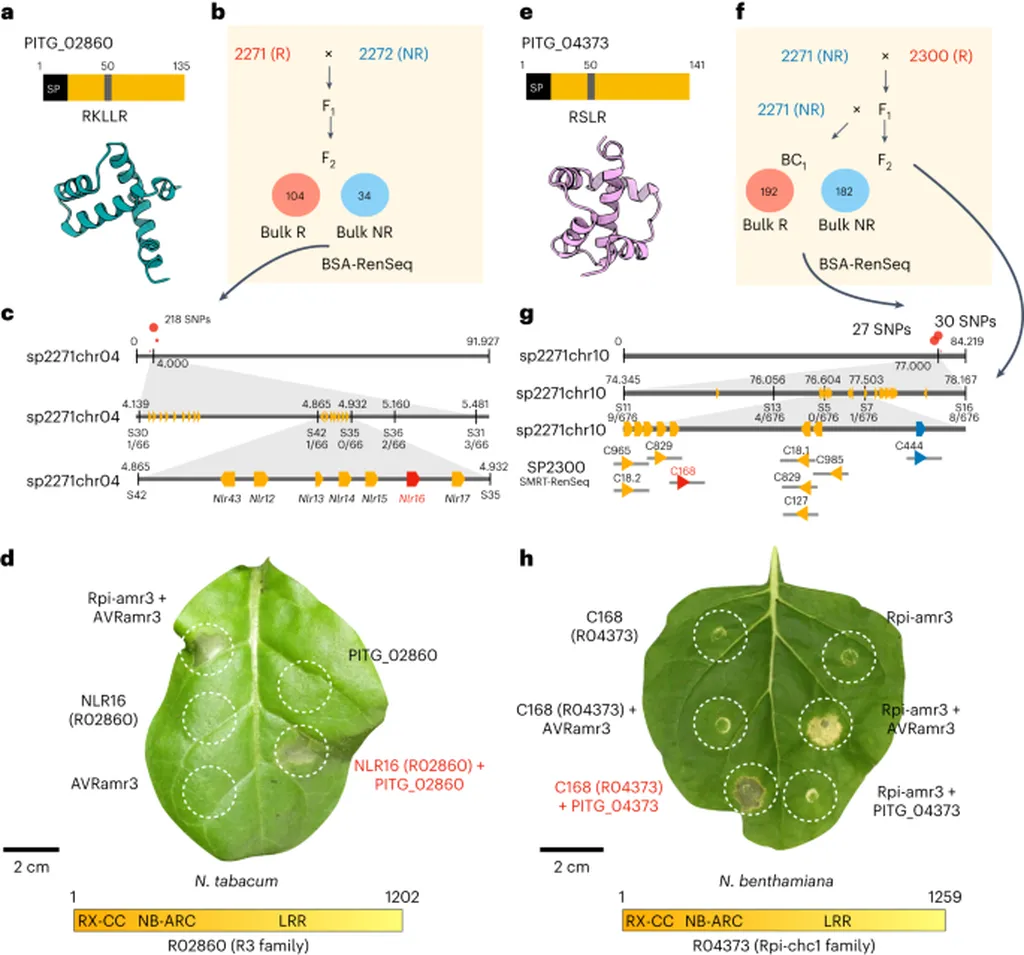In the relentless battle against potato late blight, a formidable foe that has plagued farmers for centuries, a glimmer of hope emerges from the laboratories of Yunnan Agricultural University. Researchers, led by Chunjiang Liu from the College of Plant Protection, have uncovered the potent biocontrol capabilities of a bacterium, Serratia marcescens strain YNAU-SM-1, offering a sustainable alternative to chemical fungicides. This discovery, published in the journal *BMC Plant Biology* (which translates to “Chinese Journal of Plant Biology”), could revolutionize potato farming and bolster sustainable agriculture practices.
Potato late blight, caused by the oomycete Phytophthora infestans, is notorious for its devastating impact on potato crops worldwide. Traditional chemical controls, while effective, often raise concerns about environmental sustainability and long-term health impacts. Enter Serratia marcescens YNAU-SM-1, a bacterium that has shown remarkable promise in combating this persistent pathogen.
The study revealed that YNAU-SM-1 significantly inhibited the growth of P. infestans by an impressive 70.26% in dual culture assays. “The bacterium not only stunted the mycelial growth but also induced abnormal hyphal expansion and excessive branching,” explained Liu. This disruption was further exacerbated by the bacterium’s ability to induce the accumulation of reactive oxygen species (ROS) within the pathogen, effectively inactivating its sporangia.
The bacterium’s efficacy was not confined to laboratory settings. In detached leaf, tuber slice, and greenhouse experiments, YNAU-SM-1 demonstrated disease control efficiencies ranging from 65.48% to 71.04% under various treatment conditions. “These results underscore the bacterium’s potential as a robust biocontrol agent,” Liu noted, highlighting its promise for practical agricultural applications.
Beyond direct antagonism, YNAU-SM-1 also triggered a suite of defensive responses in potato plants. The bacterium increased soluble protein content, reduced malondialdehyde (MDA) levels, and modulated the activity of defense-related enzymes like peroxidase (POD) and soluble sugars. These biochemical changes suggest that YNAU-SM-1 not only attacks the pathogen directly but also fortifies the plant’s own defenses, a dual-action approach that could enhance crop resilience.
The implications of this research extend far beyond the potato fields. As the global push for sustainable agriculture gains momentum, the discovery of effective biocontrol agents like YNAU-SM-1 could significantly reduce reliance on chemical fungicides. This shift not only benefits the environment but also aligns with the growing consumer demand for organic and sustainably produced food.
Moreover, the findings could pave the way for developing new biocontrol strategies against a broader range of plant pathogens. “Understanding the mechanisms underlying the biocontrol activity of YNAU-SM-1 provides a foundation for exploring similar interactions in other plant-pathogen systems,” Liu remarked, hinting at the broader applications of this research.
As the agricultural sector continues to evolve, the integration of beneficial microorganisms like Serratia marcescens YNAU-SM-1 into crop management practices could mark a paradigm shift. This research not only offers a viable solution to potato late blight but also sets the stage for a more sustainable and resilient future in agriculture. With further research and development, the potential of biocontrol agents like YNAU-SM-1 could unlock new possibilities for farmers and the environment alike.

